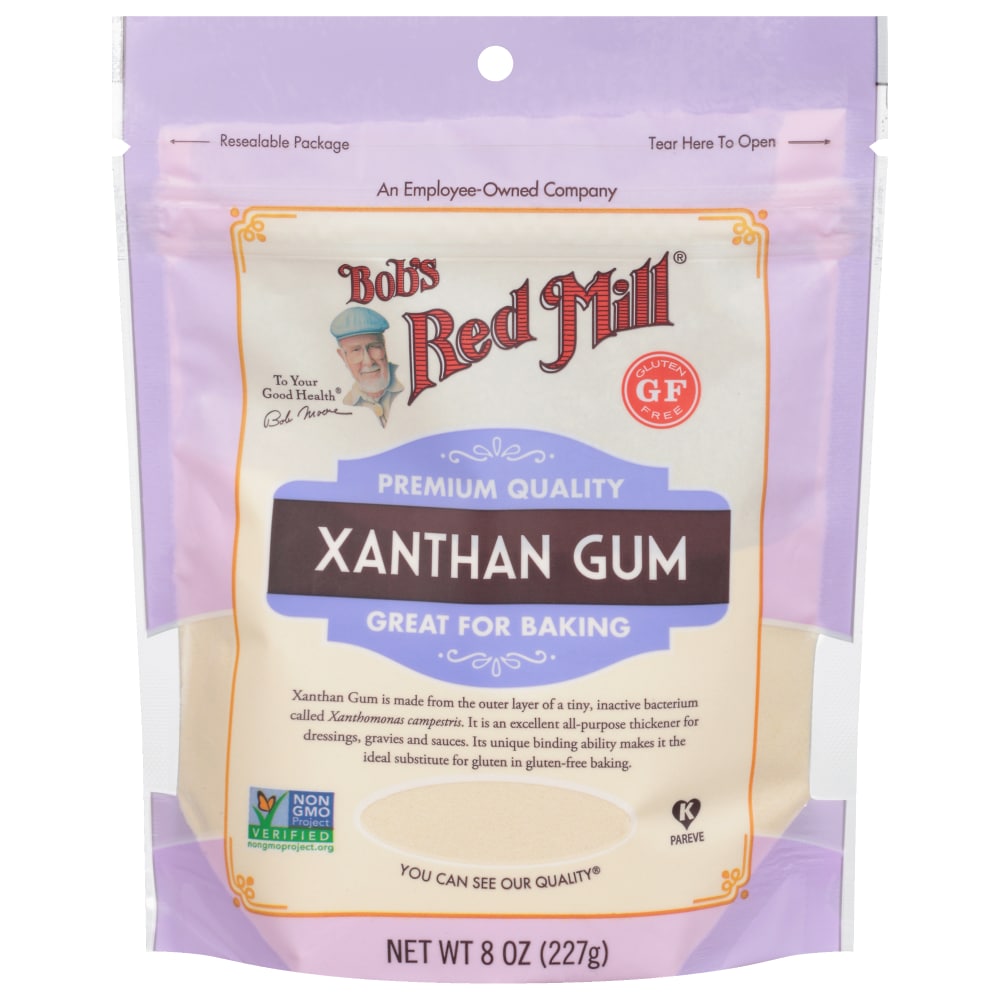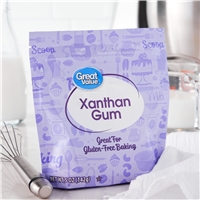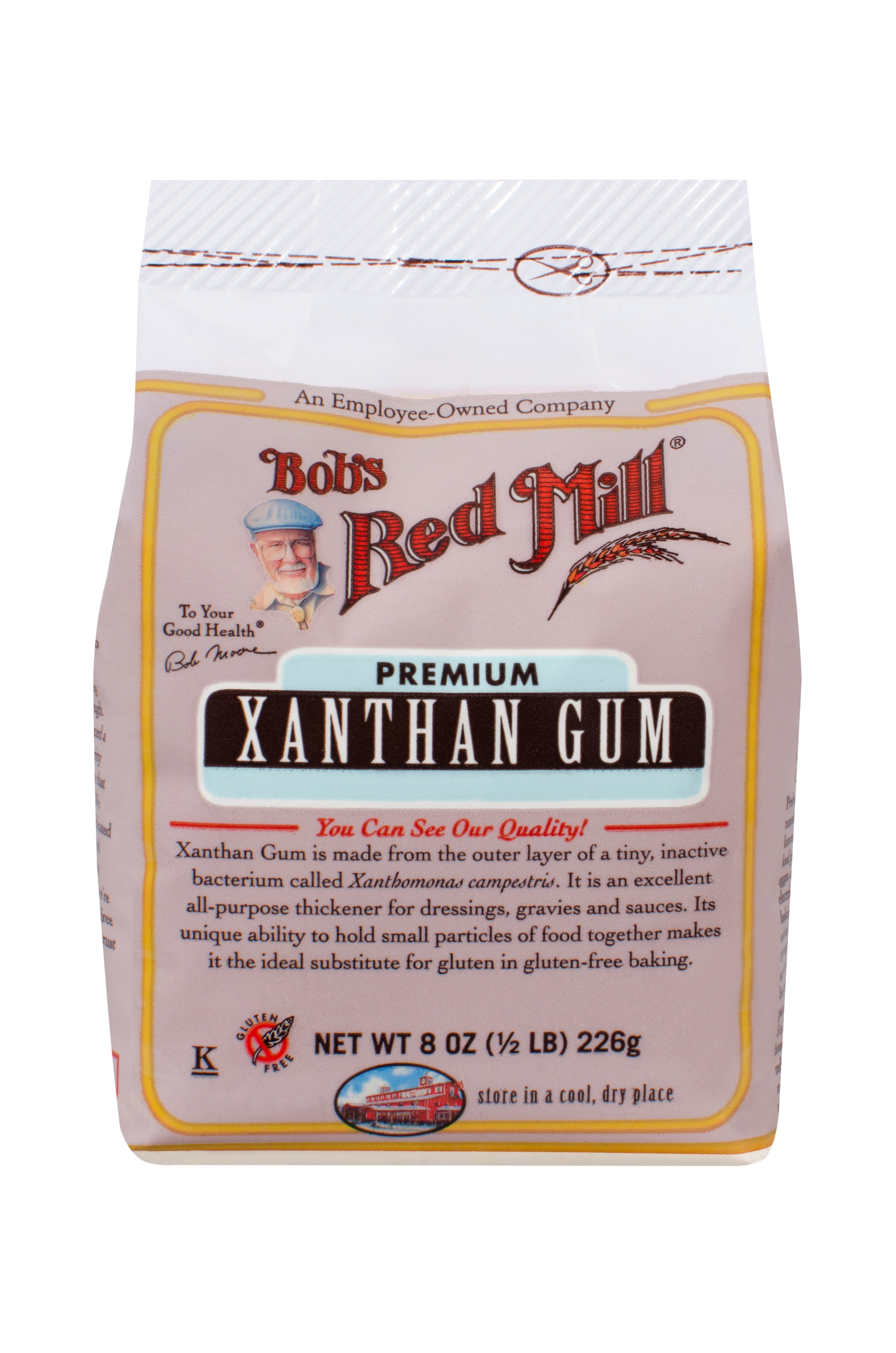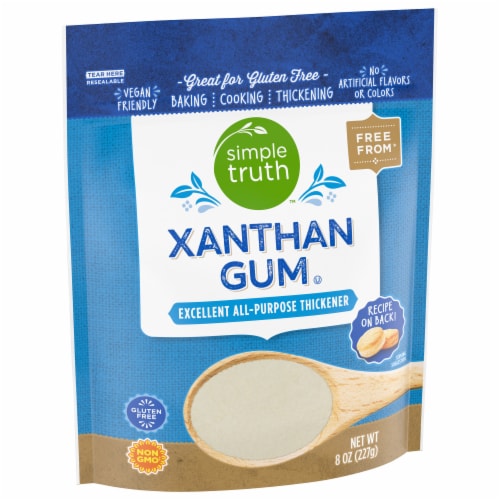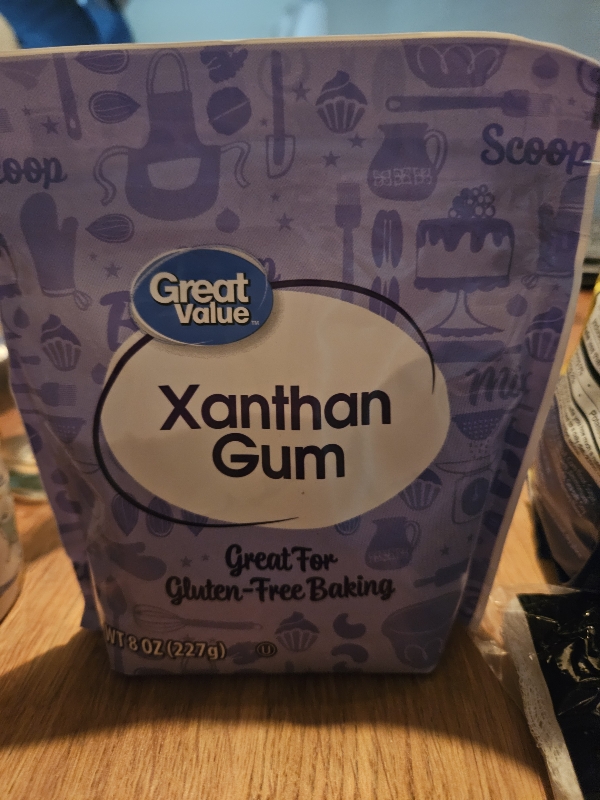BREADS
DESSERTS
SOUPS
Xanthan Gum
Xanthan gum is a versatile and popular thickening agent derived from the fermentation of a bacterium, Xanthomonas campestris. It is widely used in the food industry as a stabilizer, due to its high viscosity and ability to impart desirable texture in numerous applications such as sauces, dressings, and baked goods. As a cooking ingredient, it is prized for its ability to create a rich, stable structure without altering the taste or appearance of the final product.
For home cooks, xanthan gum is particularly useful in gluten-free and low-carb recipes, as it can mimic the elasticity and binding properties of gluten effectively. Just a small amount of this powerful ingredient significantly improves texture and cohesiveness in doughs or batters. Additionally, vegan and egg-free recipes often incorporate xanthan gum as a suitable replacement for egg whites, as it can offer a similar capability to bind and thicken.
#15
IN FLOUR & MEAL
$1.30
AVG / OZ
100%
CARBS
0%
FAT
0%
PROTEIN
134 Xanthan Gum Products
Bob's Red Mill Xanthan Gum, Premium Quality
Xanthan Gum
Bob's Red Mill Premium Xanthan Gum
Simple Truth® Xanthan Gum
Bob's Red Mill Xanthan Gum
Great Value Xanthan Gum
Carrington Farms Xanthan Gum
Xanthan Gum
Just About Foods Xanthan Gum
NOW Foods, Xanthan Gum Pure Powder, Kosher and Gluten-Free Natural Thickener, 6-Ounce
Used In 41 Recipes
4
Hearty Instant Pot Beef and Vegetable Stew
3
Creamy Baked Seafood Medley
3
Zesty Orange Sirloin Beef Stir Fry
2
Creamy Lemon Custard
4
Velvety Cheddar-Spinach Soufflés
3
Keto White Chocolate Macadamia Nut Cookies
2
Rustic Gluten-Free Sheet Pan Pizza
2
One-Pan Baked Seafood Medley
Xanthan Gum Is Frequently Used With
Xanthan Gum FAQ
When it comes to cooking with xanthan gum, the most common questions usually consist of how much to use, whether it can replace certain ingredients, and its influence on texture and taste in a recipe. An area where people often go wrong with this ingredient is by using too much which can lead to an overly gooey or slimy consistency. To get the most out of xanthan gum, it's critical to add it in small increments, as a little goes a long way due to its high thickening power. Another tip is to blend it with your dry ingredients before adding any liquid, this can prevent clumping and improve consistency throughout your dish.
The magic of xanthan gum lies in its versatility. A less known hack is to use it to stabilize whipped cream- it prevents the cream from deflating over time. It's also great for emulsifying fat into sauces, soups or juices without separate layers forming.
How much xanthan gum should I use in my recipe?
Can xanthan gum replace gluten in my recipe?
Does xanthan gum affect the taste of my food?
Can I use xanthan gum to thicken sauces and soups?
Can I use xanthan gum in my smoothie?
Can I use xanthan gum as a substitute for eggs in my recipe?
How can I avoid clumping when adding xanthan gum to my recipe?
Can I use xanthan gum in my vegan recipes?
Can I use xanthan gum to stabilize whipped cream?
Can I use xanthan gum to emulsify fats?
Expiration & Storage Tips
When does xanthan gum expire?
Xanthan gum's shelf life is quite impressive. Unopened, it can last indefinitely especially if it is stored in a cool, dry place. Its quality doesn't typically diminish over time, even years after the best-by date printed on the package. However, once opened, it can last up to three years. Pay attention to changes in texture or color, as they may hint at its expiration.
How do you tell if xanthan gum is bad?
Since xanthan gum is so shelf-stable, determining spoilage isn't usually a concern. However, if you see that your xanthan gum has changed color, has developed an off smell or the texture appears grainy or clumped, then these changes could be signs of spoilage. Also, if it has been exposed to moisture during storage, spoilage is likely.
Tips for storing xanthan gum to extend shelf life
• Store the xanthan gum in an airtight container.
• Keep it in a cool, dry place away from direct sunlight.
• If you live in a humid area or just want to be extra careful, you can add a packet of food-grade desiccant inside the container to absorb any excess moisture.
• Note that while you can freeze xanthan gum, there is typically no need to do so as it is incredibly shelf-stable.
EXPIRES WITHIN
6 - 10
MONTHS
Substitutes
Health Info
Macros
0g
CARBS
0g
FAT
0g
PROTEIN
Allowed on these diets
LOW FAT
HIGH CALCIUM
VEGETARIAN
KETO
MEDITERRANEAN
LOW CARB
VEGAN
LACTOSE FREE
GLUTEN FREE

